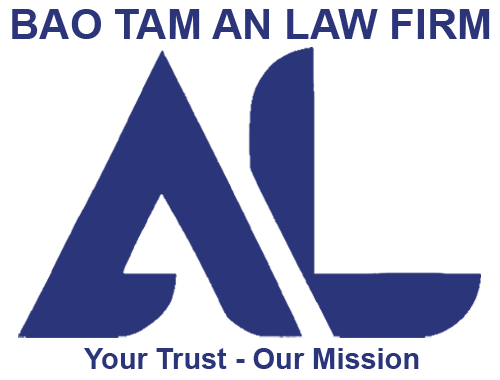How To Establish A Business In Vietnam
It could be agreed that investing and running productive businesses is a practical need for many people. There are several ways to initiate a business, but the most common is establishing a business in a relevant industry to carry out commercial operations.
What exactly is a business?
- An enterprise/company is a legal organization. It possesses name, assets, and transaction office founded or registered for commercial purposes under the rules of the law.
4 kinds of businesses in Vietnam:
- Private Enterprise.
- Limited Liability Company (with one or more members).
- Joint Stock Company.
- Partnerships.
Legal documents required for the registration of a business in Vietnam:
- Law on enterprise (2020).
- Law on investment (2020).
- Decision 01/2021/ND-CP on business registration.
- Circular 02/2023/TT-BKHDT amending Circular 01/2021/TT-BKHDT guiding on business registration.
- Circular 01/2021/TT-BKHDT guiding on business registration issued by the Ministry of Planning and Investment.
Required Conditions for establishing a business in Vietnam:
- Charter capital: the total amount of assets provided or promised to be provided by business members and owners when establishing a limited liability company or partnership; It could also be defined as the total value of shares sold or registered to purchase when establishing a joint stock company.
- Legal capital: Minimum capital will be required for specific occupations and businesses (for instance, the legal capital to establish a real estate company is 20 billion).
- Business sectors: Businesses can freely operate in any industry and profession that is not forbidden by the government. Particularly for conditional sectors (listed in Appendix IV of the Investment Law 2020), firms must verify that they fulfill the legal requirements of each industry.
- Headquarters: Every business must have its own headquarters. The headquarters, which is located in Vietnamese, is the business’s address. It is verified by administrative unit limits. The phone number, fax number, and email address are also required.
- Name of the Business: consists of two parts: the type of business and the name of the business (the name is written in Vietnamese letters and the letters F, J, Z, W, numerals, as well as symbols). The business’s name must be shown at the company’s headquarters, branches, representative offices, and business locations.
- Company seal: Enterprises can choose their own type of seal, amount, form, and content of the enterprise’s seal. After that, they must inform the registered management agency of the seal sample before use.
- For enterprises with foreign investment capital: Investment producers must be finished before establishing a business or contributing capital, buying shares, or purchasing capital contributions from organizations. or other economic institutions.
Caution! These are some cases prohibited for registering a business in Vietnam, such as:
- Government officials and civil staff.
- Professional soldiers, People working in the Department of Defense… people working in the Vietnam Army or Vietnam Police…
- Minors;
- People with limited civil act ability;
- People who have lost civil act ability;
- People who have trouble with cognitive and behavior management;
- Non-legal organizations;
- Individuals who are being prosecuted for criminal responsibility, are imprisoned, are serving a jail term, are serving administrative orders in a mandatory drug treatment center, a mandatory education facility, or are being detained by a court. Prohibited from holding certain positions, practicing certain vocations, or doing certain activities;
- Cases defined by the Bankruptcy Law and the Law on Prevention and Combat of Corruption.
- Organizations are banned from doing business in some particular majors based on criminal law.
Documents required for business registration:
- A business registration application.
- Company rules
- List of original members/shareholders, particularly those who are foreign investors.
- Copies of members’/shareholders’ legal documentation
- Copies of the Legal Representative of Business’s legal documents
- A copy of the Investment Registration Certificate for foreign investors, as required by the Investment Law.
Obviously, the needed documentation is slightly different between the forms of the firm (private enterprise, LLC, Joint Stock Company, Partnership, Business line, etc.)
Procedures for registering a business:
-
There are 3 ways that Businesses can submit their applications:
- Directly register with the business registration agency (the business registration office under the Department of Planning and Investment or the industrial park management board for enterprises located in industrial parks).
- Registering through the postal service;
- Registering through an electronic information network;
-
Within three working days of receiving the application, the Business Registration Authority will judge the application and then return the final results:
- Valid documents: a business registration certificate will be issued.
- If the application is found invalid, the Business Registration Authority will advise the applicant on what must be rectified or supplemented.
- If business registration is denied, a written notification specifying the cause will be sent.
Heedful!
Following the establishment of a business, the owner must also complete a number of other processes before the firm may run, such as:
- Notice of company seal sample;
- Display signage in accordance with rules;
- Record and pay taxes;
- Sign up to use invoicing.
- Make the first labor statement;
- Create a compensation scale;
- Register for a social insurance code and declare social insurance.
Furthermore, several obstacles may arise throughout the process of drafting paperwork and carrying out business registration procedures, such as:
- Transferring the ownership of assets.
- Consular legalization of legal documents.
- Proof of capital contribution (for professions requiring charter capital).
- Determine if the headquarters site complies with rules (for example, headquarters cannot be housed in residential complexes).
Establishing a corporate charter suited to the needs of the owner is a prerequisite (especially in determining the rules for dividing the rights and responsibilities of members/shareholders, creating the organization’s legal representative power, and scheduling the Board of Directors/General Meeting of Shareholders meetings).
Therefore, if investors lack experience, they will need assistance from a professional consulting organization.
